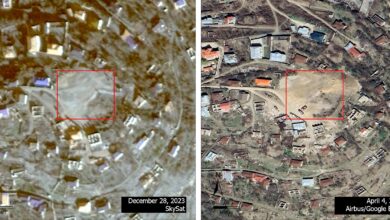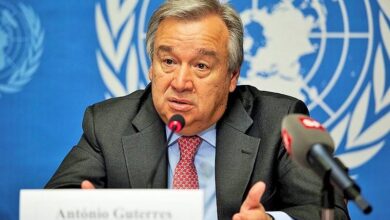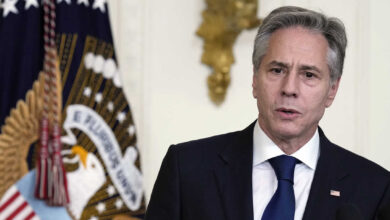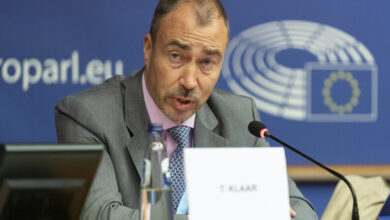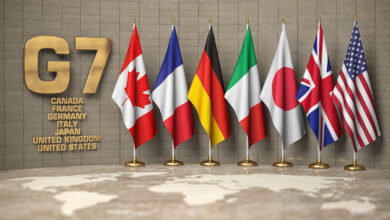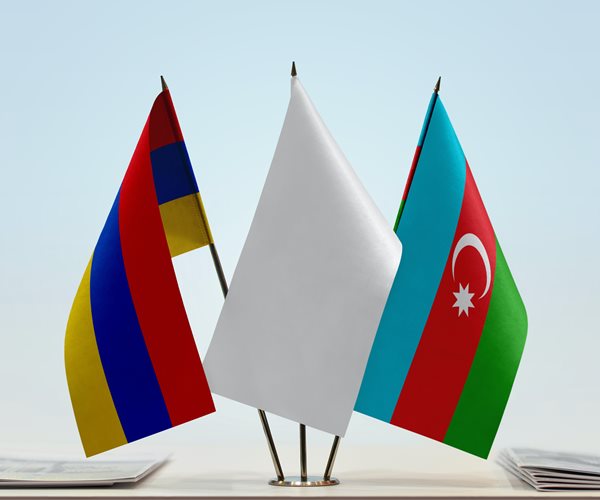
The recent cross-border hostility involving the armed forces of Armenia and Azerbaijan on the international border of Armenia indicates that miscalculation in hybrid war can lead to grave political and military consequences, Armenian Ambassador to the United States Varuzhan Nersisyan writes in an article published by Newsmax.
Recent weeks have seen a major increase in aggression from Armenia’s neighbor Azerbaijan. On July 12, Azerbaijani forces abruptly attacked Armenian positions in the northern province of Tavush.
“Amid a mounting death toll from the aggression, Azerbaijan’s government has fomented anti-Armenian hatred and even threatened a missile strike on Armenia’s nuclear power plant. The threat marks a violation of international law and humanitarian standards with echoes of the atrocities of the early 20th century,” the Ambassador writes.
According to him, decisive action by the international community – led by the United States, France and Russia under the auspices of the Organization for Security and Co-Operation in Europe – can make the difference between a return to increased military hostilities, including all-out war, and de-escalation.
“The July military skirmishes – including commando operations, artillery duels, the use of drones and cyber warfare – have been part of a larger hybrid war initiated by Azerbaijan against Armenia and Nagorno-Karabakh. The strategy has been carefully planned since Azerbaijan’s 2011 rejection of the Nagorno-Karabakh-Kazan Document, a peace plan presented at the highest levels by the U.S., France and Russia through the OSCE Minsk Group,” Amb. Nersisyan notes.
Since then, he continues, the hybrid war waged by Azerbaijan has taken on ever greater intensity. Until recently, the peak of violence was in April 2016, when Azeri forces initiated a large-scale offensive aimed at conquering Nagorno-Karabakh.
The Ambassador stresses that negotiations at the time did not succeed because Azerbaijan resorted to a maximalist position that demanded compromises from Armenian with nothing in return.
“Obviously, this “coercive diplomacy” has not worked. Azerbaijan’s petro-dictatorship had to explain this failure to its own populace, which was not easy to do. Thus, the leadership in Baku has resorted to dangerous diversions: more visible military provocations on the ground and more belligerent speech against Armenia,” he continues.
“While the July incursions have been successfully repelled to date, Azerbaijan continues to conduct hostilities. At the start of the week, an Azerbaijani sniper killed an Armenian serviceman and Azerbaijan’s armed forces began large-scale military drills at the border with Armenia and Nagorno-Karabakh. Meanwhile, Turkey ominously threatened to “punish” Armenia,” Varuzhan Nersisyan notes.
According to him, these developments show the most recent ceasefire is still extremely fragile. “Faced with a populace chafing from years of autocratic rule and bombarded with anti-Armenian propaganda, the Azerbaijani government may yet be tempted to initiate even bigger hostilities. Turkish leaders’ inflammatory statements have undermined the already fragile peace in the region. They not only remain stubbornly opposed to recognizing the Armenian Genocide; they are threatening to continue the legacy of that crime by abetting Azerbaijan’s aggression.”
Speaking about the steps the international community can take to obviate the grave risks in the region, the Ambassador says “a functioning system of confidence and security-building measures along the Armenian-Azerbaijani border and on the line of contact between Nagorno-Karabakh and Azerbaijan can prevent isolated acts of violence from spiraling out of control.”
“It is in everyone’s interest to minimize the possibility of war, which can erupt as a result of errors. The international community should support the activities of the mediators and press for the establishment of more verifiable confidence-building measures, including an investigative mechanism, that help keep the ceasefire intact. Armenia, which underwent a peaceful, democratic revolution just two years ago, will continue to act in good faith and with restraint as it observes the right to defend its borders and secure peace and stability for its population. Azerbaijan should meet us halfway; it also should not test Armenia’s resolve. Prime Minister of Armenia Nikol Pashinyan was the first Armenian leader to declare that any solution to the conflict should be acceptable for the people of Azerbaijan, along with the peoples of Armenia and Nagorno-Karabakh,” Amb. Nersisyan writes.
He notes that the door to reciprocation is still open and peace is far preferable to war, especially war that is the result of dangerous miscalculations and misperceptions.



